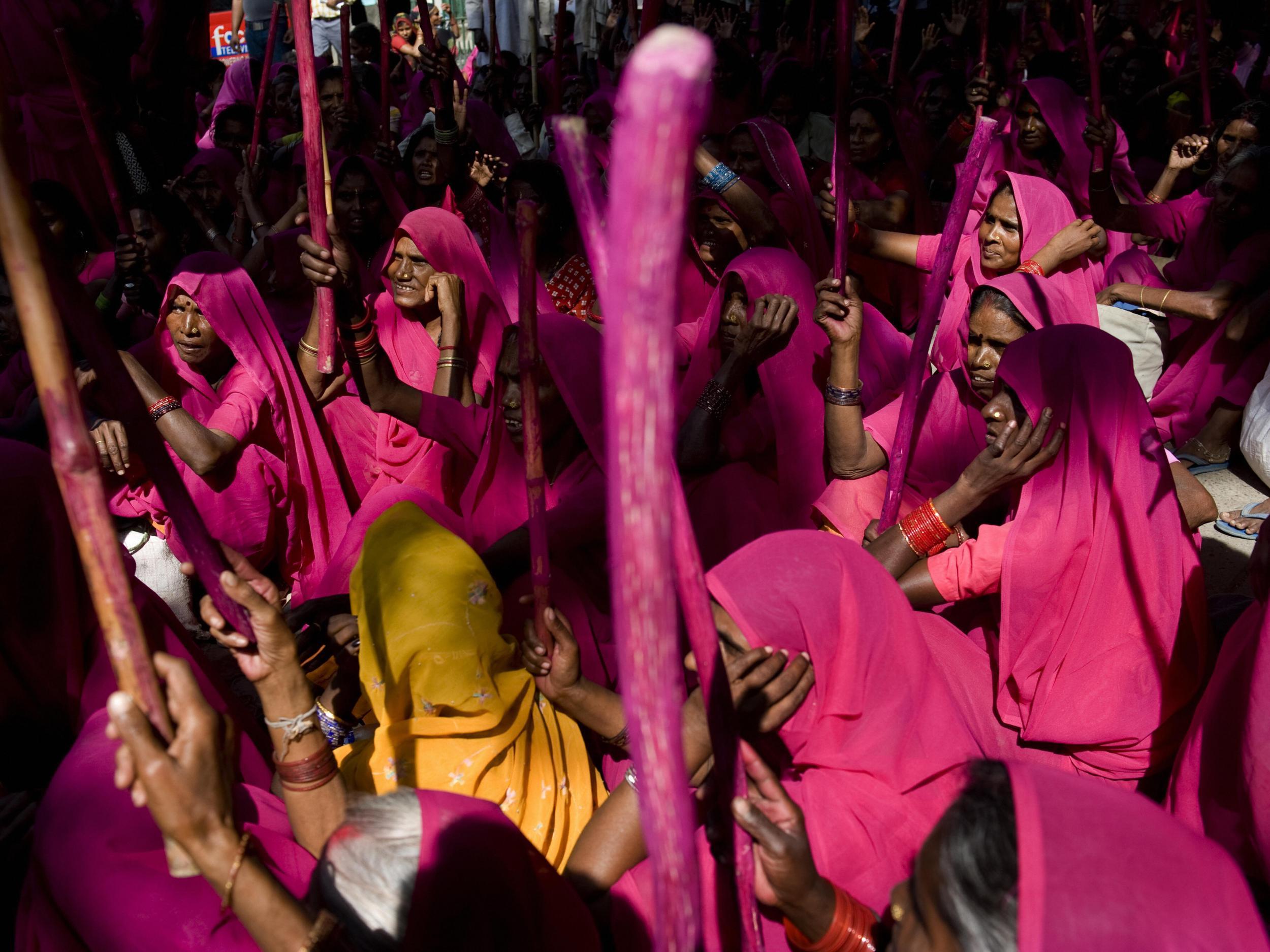Indian brides given wooden paddles to hit drunken, abusive husbands by leading politician
Gopal Bargava says he wants to draw attention to the problems of domestic violence in India with the bats, which come with slogans such as 'Police won't intervene'

Your support helps us to tell the story
From reproductive rights to climate change to Big Tech, The Independent is on the ground when the story is developing. Whether it's investigating the financials of Elon Musk's pro-Trump PAC or producing our latest documentary, 'The A Word', which shines a light on the American women fighting for reproductive rights, we know how important it is to parse out the facts from the messaging.
At such a critical moment in US history, we need reporters on the ground. Your donation allows us to keep sending journalists to speak to both sides of the story.
The Independent is trusted by Americans across the entire political spectrum. And unlike many other quality news outlets, we choose not to lock Americans out of our reporting and analysis with paywalls. We believe quality journalism should be available to everyone, paid for by those who can afford it.
Your support makes all the difference.An Indian state has handed out hundreds of wooden bats to newly married women to use as a weapon if their husbands become abusive.
Gopal Bargava, a Minister in the state of Madhya Pradesh, handed out the paddles, traditionally used to get dirt out of clothes in old-fashioned laundries, to around 700 brides at a mass wedding.
The nearly foot-long paddles have messages on them that read “For beating drunkards” and “Police won’t intervene”.
Mr Bhargava told Agence France Presse he wanted to draw attention to the domestic abuse of rural women receive from their alcoholic husbands.
He said: "Women say whenever their husbands get drunk they become violent. Their savings are taken away and splurged on liquor.
"There is no intent to provoke women or instigate them to violence but the bat is to prevent violence."
He has ordered nearly 10,000 bats to distribute to newly wed women.
The governor said he decided on the move after a woman asked him if she should beat her husband with a bat to stop him drinking.
In the state a group of feminist vigilantes called the Gulabi Gangs, who wear pink saris and carry wooden sticks, have started a campaign to stop vendors selling alcohol and to shut down illegal moonshine operations, the Daily Telegraph reported.
Many Indian states have launched crackdowns on alcohol in recent years by banning or restricting its sale in an attempt to prevent violence.
In 2016 the government of Tamil Nadu state said they would introduce a ban during a state election campaign after the measure proved popular with women voters who blame alcohol for much of the state’s domestic and sexual violence.
The has been increasing concern about widespread misogyny across India.
Crimes against women increased 34 per cent between 2012 and 2015 according to the National Crime Records Bureau.
Last year the federal transport minister announced all buses would be fitted with panic button alarms to help protect people on public transport.
The buttons will send an emergency alert to the control room at a local police station.
The move followed the brutal gang-rape and disembowelment of a 23-year-old medical student in Delhi in December 2012 which sent shockwaves around the world.
The attack provoked furore in India and lead to swift legislative action, but the reactions of some men showed the extent of the problem.
The bus driver during the incident, Mukesh Singh, told the BBC in 2015 that “a decent girl won't roam around at nine o'clock at night” and “boys and girls are not equal”.
Join our commenting forum
Join thought-provoking conversations, follow other Independent readers and see their replies
Comments